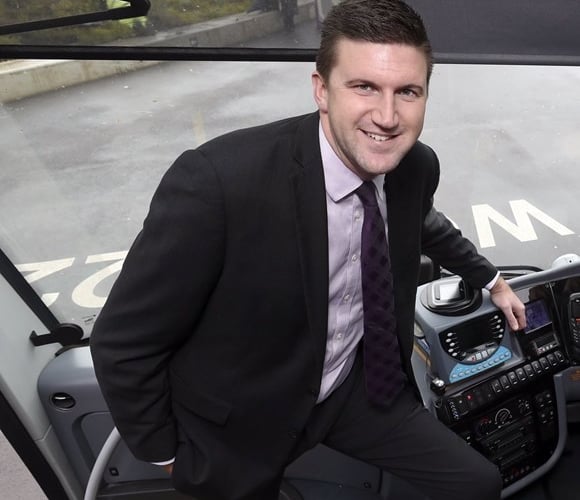The future of Devon’s £2 bus service depends on a new funding deal, the boss of Stagecoach South West has suggested.
While passengers pay the fixed fare for single journeys, the extra money the transport company would usually charge is reimbursed to them by central government.
The scheme, introduced in January 2023 by the former Conservative administration as a post-pandemic measure to encourage people to get back on public transport, is due to end in December.
But Peter Knight, Stagecoach South West’s managing director, says policy decisions by the Labour government is key to its future.

“We are reimbursed by central government for the £2 fare, but there is a challenge as to what that looks like going forward,” he told Radio Exe’s Devoncast podcast.
“We are only eight-to-nine weeks into a new administration and that will be a policy decision for the government in the coming weeks and months.
“At the moment, we are reimbursed for lost revenue at a fixed rate but going forward that needs to keep pace with inflation.”
Mr Knight acknowledged the bus industry faces “significantly higher operating costs” and that the “only way to cover these is from fares”.
He said the £2 fare had increased Stagecoach South West’s passenger numbers by around eight to 10 per cent, showing that people viewed it as “clearly great value for money” and that its simplicity contributes to its effectiveness.
Separately, Mr Knight says the firm is addressing its net-zero ambitions through an order for 90 electric buses.
At present, all of its 350-strong fleet is diesel, but the electric buses become operational in around 18 months.
Mr Knight acknowledged that while the buses are a positive development, the firm needs to install the infrastructure to make sure they can be charged and ready to hit the streets.
“We are going to need 12 chargers in Exeter to support the 22 electric buses that will be deployed in the city,” he said.
Having run a fleet of electric buses in his former Stagecoach job in Scotland, Mr Knight believes worries that the vehicles won’t be able to handle the distances and terrain of Devon’s routes are misplaced.
“Battery technology is evolving very quickly, and in the city they can do about 180 to 200 miles a day which is what they need to do,” he said.
Mr Knight said single decker buses had been ordered for Exeter, while North Devon is likely to have mainly double deckers, with smaller mini bus-style vehicles for quieter, rural routes.
In terms of challenges, Mr Knight said the biggest problem for his firm is navigating the county’s congestion and roadworks, particularly in Exeter.
“We work closely with Devon County Council to ensure roadworks are coordinated and bus services are given priority through them,” he said.
“And where there is no alternative, we do the best job we can to ensure timetable resilience.”
Mr Knight said when he arrived at the firm at the end of 2022, it was still struggling with staffing numbers.
He said Brexit had prompted many of its Eastern European drivers to return to the continent, covid lockdown restrictions inhibited driver training, and some staff re-evaluating their work/life balance following the pandemic.




